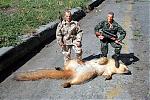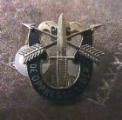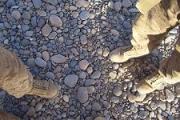Tufts, Nov 10: Winning Hearts and Minds? Examining the Relationship between Aid and Security in Afghanistan’s Balkh Province
...The Balkh Province case study is part of a larger five-province Afghanistan country study looking at the assumption that humanitarian and development assistance projects can help to bring or maintain security in strategically important environments, and can help “win hearts and minds,” thereby undermining support within the local populace for radical, insurgent, or terrorist groups. Afghanistan provided an opportunity to examine one of the most concerted recent efforts to use “hearts and minds” projects to achieve security objectives. It has been the testing ground for new approaches to using reconstruction assistance as a counterinsurgency tool. The assumption that aid projects improve security has lead to a sharp increase in overall development funding, an increased percentage of activities based on strategic security considerations, and a shift of development activities to the military. In this light, it is essential that policy makers understand whether and how aid projects can actually contribute to security....










Bookmarks